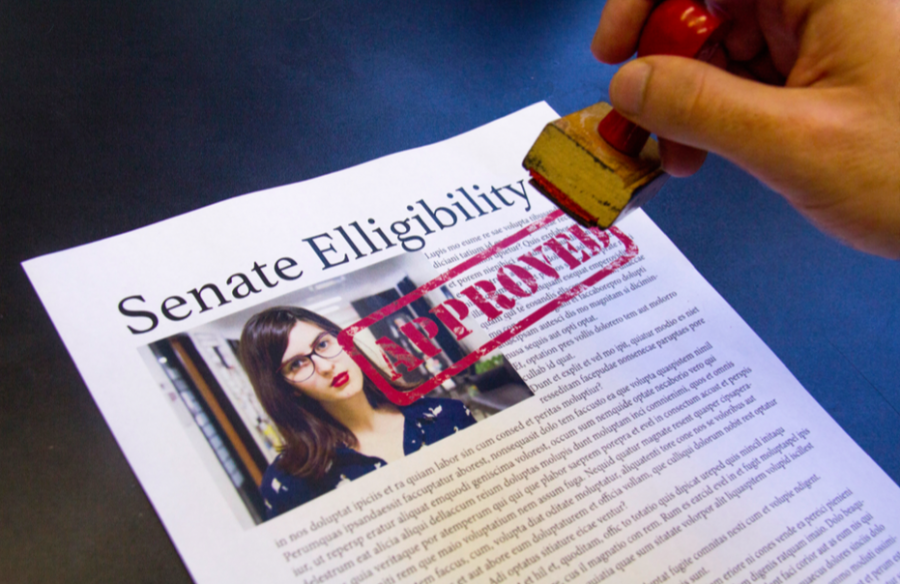Concordia Senate Approves Proposal to Change Senate Eligibility Requirements
On April 1, 2015, student-protesters disrupted political science professor Michael Lipson’s class as part of a strike mandate.
Lipson, alongside two other professors from his department, eventually filed formal complaints against 25 students under the university’s Code of Rights and Responsibilities. At least 16 of them received a letter of reprimand, the most lenient of consequences, from independent tribunals.
Those affected included current Concordia Student Union General Coordinator Lucinda Marshall-Kiparissis and Marion Miller, a former CSU coordinator and the current Fine Arts representative on Concordia’s Senate. Due to these letters of reprimand, the two have thus far not been able to participate in the activities of Senate, the university’s second highest decision-making body.
Senate eligibility bylaws state that senators cannot serve if they have been sanctioned under the university’s Code of Rights and Responsibilities.
“This letter of reprimand, all it’s done is provide a very small bureaucratic hiccup in terms of sitting on Senate and Board of Governors,” Marshall-Kiparissis said after she was elected.
Now, that has all changed.
When Senate established an ad hoc committee on May 3, 2016, their goal was to “review the current eligibility requirement for constituents to serve on Senate and its standing committees and bring a recommendation in the Fall 2016.”
After a summer of deliberation, meetings, and a wide range of opinions on the subject, the committee came to a conclusion, and a proposal—which was presented at Senate on Oct. 7, 2016 and passed with no issues.
“I am looking forward to being able to participate in the university’s decision-making as I’ve been [appointed] by the undergraduate [students] to do,” said Marshall-Kiparissis after the proposal was approved.
The committee was made up of faculty members in addition to Sophia Sahrane, the CSU Academic and Advocacy Coordinator, and Gene Morrow, a Campaigns and Academic Researcher at the student union.
David Morris, the Chair of the Philosophy Department, who also chaired the committee, presented the proposal at Senate.
“This is a good development for Concordia to build trust across the different constituencies and I don’t see any reason why we don’t need to trust one another,” he said. “This kind of discussion, this kind of support for things, is just what Concordia needs as I think a really growing, young, cosmopolitan university.”
The committee recommended that they remove all requirements for students not to be sanctioned based on the Academic Code of Conduct, as well as the requirement for students not to be sanctioned under the Code of Rights and Responsibilities within the three years previous to their nomination.
“I can’t put enough emphasis on the fact that the spectrum where [everyone on the committee] stood was out of this world,” Sahrane said. “It is amazing that we were able to come a conclusion that everybody was kind of happy with.”The change in eligibility requirements fall in line with Quebec’s Accreditation Act which says that “an accredited students’ association or alliance may, alone, appoint students who, under an Act, regulation, by-law, charter or agreement, are called upon to sit or participate as student representatives on various councils, committees or other bodies in the institution.”
Not Over Yet
Although some changes were made, independent students and students in “conditional standing” according to academic regulations, are still not able to sit on Senate. This is something that the CSU still wants to change.
“In terms of respecting the CSU’s ability to appoint its own representatives like in accordance to the Accreditation Act of Quebec for student unions, we should be able to appoint independent students, and students in conditional standing if the undergraduates see fit to do so,” Marshall-Kiparissis said.
When the eligibility issues came up a few weeks before their annual General Elections in March, the council of the CSU mandated the executive team to demand the university to change its bylaws regarding Senate and Board of Governors eligibility. They were also mandated to take legal action if the laws were not able to change.
“I voted ‘Yes’ but I do want it noted in the minutes that although I did support this recommendation, I also voice our dissatisfaction with independent students, and conditional standing students not being eligible to sit on Senate,” Sahrane said during the Senate meeting.
The reason why Sahrane made a point to have that noted in the minutes was to make sure that the CSU’s dissatisfaction with the motion was on record at Senate. The CSU can still challenge it and sue the university should they want to take that avenue.
“Either a dialogue needs to keep going on this issue or we are going to sue the university,” she said, adding that they won’t sue the university just for the sake of it.
As for the future, although Marshall-Kiparissis can now legally sit on Senate, she still cannot legally sit on the Board of Governors, which is the senior governing body of the university, because of her letter of reprimand.
“There is an intention from the Board of Governors to mirror the eligibility process for Senate so that just needs to be discussed, but I’m not anticipating right now,” Marshall-Kiparissis said.
Correction: A previous iteration of the story said that the CSU was mandated to change eligibility by laws after the general elections. It had happened before. The story previously said that Sophia Sahrane said that she was dissatisfied with independent and conditional standing students “being eligible to sit on Senate.” This is not the case and corrections have now been made. The Link regrets the error.





webedit_600_375_90_s_c1.jpg)
_600_375_90_s_c1.jpg)
